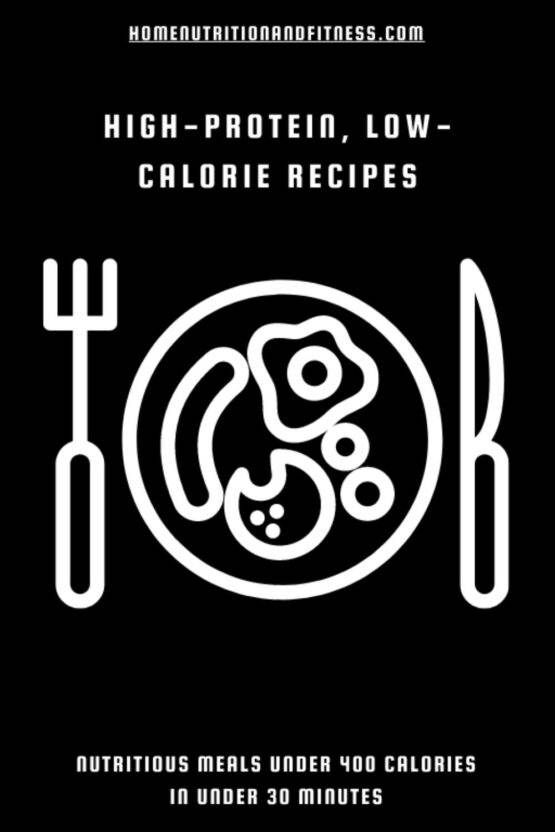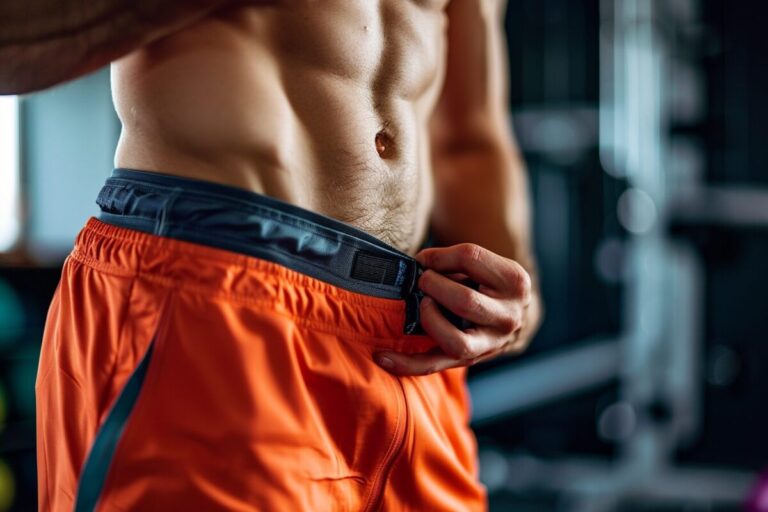Have you been taking pre-workout for a while and thinking of stopping?
Wondering what might happen if you quit cold turkey?
Pre-workout might give you a boost of energy for your workouts but what happens when you stop altogether?
Let’s find out…
Going ‘Cold Turkey’ when quitting pre-workout can lead to withdrawal symptoms such as anxiety, irritability, headaches, and fatigue. This is mainly due to the withdrawal of caffeine. Caffeine is a stimulant that can increase energy levels and improve mental focus. However, caffeine can also cause side effects such as jitters, anxiety, and insomnia. However, it is important to note that not everyone experiences withdrawal symptoms when quitting pre-workout. Factors such as how long you have taken pre-workout for and how much your dose is can affect how long the withdrawal symptoms can last or how severe they are.
Understanding Pre-Workout Supplements
We all know about pre-workouts. Why else would you be here?
These are supplements that are taken before a workout to enhance performance, increase energy levels, and improve focus. Pre-workout supplements usually contain a combination of ingredients such as caffeine, beta-alanine, creatine, and nitric oxide boosters.
Pre-workout supplements are not necessary for a good workout, but they can be helpful, especially if you are feeling tired or unmotivated. However, it is important to note that pre-workout supplements can have side effects, especially if they are taken in large doses or for a long time.
One of the main ingredients in pre-workout supplements is caffeine. Caffeine is a stimulant that can increase energy levels and improve mental focus. However, caffeine can also cause side effects such as jitters, anxiety, and insomnia. It is important to be aware of the amount of caffeine in your pre-workout supplement and to not exceed the recommended dose.
Another common ingredient in pre-workout supplements is beta-alanine. Beta-alanine is an amino acid that can help to reduce fatigue and improve endurance. However, beta-alanine can also cause a tingling sensation in the skin, which some people find uncomfortable.
Creatine is another ingredient that is often found in pre-workout supplements. Creatine is a natural substance that is found in muscle cells and can help to improve strength and power. However, creatine can also cause side effects such as stomach upset and dehydration.
Nitric oxide boosters are also commonly found in pre-workout supplements. Nitric oxide is a gas that can help to dilate blood vessels and improve blood flow. This can help to increase nutrient and oxygen delivery to the muscles, which can improve performance. However, nitric oxide boosters can also cause side effects such as headaches and dizziness.
In summary, pre-workout supplements can be helpful for enhancing performance, but they can also have side effects. It is important to be aware of the ingredients in your pre-workout supplement and to not exceed the recommended dose.
Related Posts:
- How Does Honey and Himalayan Salt Work as a Pre-Workout? (THE SCIENCE)
- Will Pre-Workout Wake You Up? Can It Replace Your Morning Coffee?
- What is the Difference Between Protein Powder and Pre Workout?
The Concept of “Cold Turkey”
When you decide to stop taking a substance abruptly and without tapering off, it is referred to as “quitting cold turkey.” This term is commonly used to describe the sudden cessation of drugs, alcohol, or even cigarettes.
Quitting cold turkey can be a difficult and potentially dangerous process, depending on the substance you are quitting. When you stop taking a substance abruptly, your body may experience withdrawal symptoms as it tries to adjust to the sudden change.
Withdrawal symptoms can vary depending on the substance, but some common symptoms include:
- Nausea
- Headaches
- Sweating
- Shaking
- Anxiety
- Insomnia
In some cases, quitting cold turkey can lead to more severe withdrawal symptoms, such as seizures or hallucinations. This is especially true for substances like alcohol and benzodiazepines, which can have life-threatening withdrawal symptoms if not properly managed.
It’s important to note that quitting cold turkey is not recommended for everyone. If you are thinking about quitting a substance, it’s always best to speak with a healthcare professional first. They can help you develop a safe and effective plan for quitting, which may involve tapering off the substance gradually rather than quitting abruptly.
Overall, quitting cold turkey can be a challenging and potentially dangerous process. If you are thinking about quitting a substance, it’s important to seek professional help and support to ensure a safe and successful recovery.
Potential Withdrawal Symptoms
If you suddenly stop taking pre-workout supplements, you may experience withdrawal symptoms. These symptoms can vary from person to person, but some common ones include fatigue, anxiety, irritability, nausea, headaches, depressed mood, and aches and pains.
Fatigue is a common symptom of pre-workout withdrawal. Your body has become accustomed to the energy boost provided by the supplements, and when you stop taking them, you may feel more tired than usual. This can make it difficult to get through your workouts or even your daily routine.
Anxiety and irritability are also common symptoms of withdrawal. Pre-workout supplements often contain caffeine, which is a stimulant that can increase feelings of alertness and energy. When you stop taking caffeine suddenly, you may experience increased anxiety and irritability.
Headaches are another potential symptom of pre-workout withdrawal. Caffeine is a vasoconstrictor, which means it narrows the blood vessels in your brain. When you stop taking caffeine, your blood vessels may suddenly dilate, which can cause headaches.
In some cases, pre-workout withdrawal can lead to more serious symptoms, such as seizures. This is more likely to occur if you have been taking high doses of pre-workout supplements or if you have a history of seizures.
If you are experiencing withdrawal symptoms from pre-workout supplements, it is important to talk to your doctor. They may be able to provide you with medication or other treatments to help manage your symptoms and make the withdrawal process more comfortable.
Side Effects of Stopping Pre-Workout
If you suddenly stop taking pre-workout, you may experience some withdrawal symptoms. This comes from the sudden reduction in your caffeine intake. Some of the common symptoms of pre-workout withdrawal include fatigue, anxiety, irritability, and headaches. However, the severity of these symptoms will depend on your individual biology, as some people are much more prone to withdrawal symptoms than others.
Moreover, some pre-workout supplements contain other ingredients such as beta-alanine that can cause tingling sensations. If you stop taking pre-workout, you may experience a decrease in these sensations.
In addition to withdrawal symptoms, stopping pre-workout may also affect your digestive system. Pre-workout supplements can affect your appetite, and some people may experience vomiting or diarrhea when they stop taking it. You may also experience blurry vision, which is a common side effect of caffeine withdrawal.
If you are experiencing any of these symptoms, it is recommended that you gradually reduce your pre-workout intake instead of stopping it abruptly. You can also replace pre-workout with caffeine-free alternatives or drink coffee or tea to make up for your caffeine intake.
Related Posts:
Impact on Sleep and Mood
If you suddenly stop taking pre-workout, it is possible that you may experience some withdrawal symptoms that can impact your sleep and mood. Pre-workout supplements often contain caffeine, which is a stimulant that can cause insomnia and affect your sleep quality. Caffeine can also cause anxiety and irritability, which can negatively impact your mood.
If you’re experiencing trouble sleeping after stopping pre-workout, you may want to try taking melatonin supplements. Melatonin is a hormone that helps regulate sleep. Taking melatonin supplements can help you fall asleep faster and improve your sleep quality. However, it’s important to follow the recommended dosage and talk to your doctor before taking any supplements.
In addition to sleep disturbances, stopping pre-workout cold turkey can also cause mood changes. Some people may experience symptoms of depression, such as low mood, lack of interest in activities, and feelings of hopelessness. It’s important to talk to your doctor if you’re experiencing symptoms of depression or suicidal thoughts.
To avoid the negative impact of stopping pre-workout on your sleep and mood, it’s recommended to taper off your caffeine intake gradually. This can help your body adjust to the changes and reduce the risk of withdrawal symptoms.
Related Posts:
The Role of Tolerance and Dependence
When you take pre-workout supplements regularly, your body can develop tolerance to the ingredients, meaning that you may need to take more of the supplement to feel the same effects. This can lead to dependence, where your body becomes reliant on the supplement to function properly.
If you suddenly stop taking pre-workout supplements, you may experience withdrawal symptoms, which can include fatigue, anxiety, irritability, and headaches. The severity and duration of these symptoms can vary depending on your individual biology and the length of time you have been taking the supplement.
It is important to note that quitting pre-workout cold turkey can be dangerous, especially if you have been taking high doses or have been using the supplement for a long period of time. It is recommended that you gradually reduce your intake of the supplement under the guidance of a healthcare professional.
In order to avoid developing tolerance and dependence on pre-workout supplements, it is important to use them in moderation and not rely on them as a crutch for your workouts. Additionally, you can try switching to caffeine-free pre-workout supplements or natural alternatives such as beetroot juice or green tea.
Overall, it is important to listen to your body and be aware of any changes or symptoms that may arise when taking pre-workout supplements. If you are considering quitting pre-workout cold turkey, it is recommended that you seek the advice of a healthcare professional to ensure your safety and well-being.
Health Risks and Considerations
Stopping pre-workout cold turkey can have a range of health risks and considerations that you should be aware of. It’s important to note that everyone’s experience will be different, and some people may not experience any negative effects at all. However, it’s still important to be aware of the potential risks.
One of the main risks of stopping pre-workout cold turkey is the potential for withdrawal symptoms. These can include anxiety, irritability, and headaches. However, it’s worth noting that the severity of these symptoms can vary depending on your individual biology. Some people are more prone to withdrawal symptoms than others.
It’s also important to consider the impact of pre-workout on your overall health. While pre-workout can provide a temporary boost of energy and performance, it’s not a sustainable solution. Over time, relying on pre-workout can lead to issues with addiction and dependence. It’s important to speak to a healthcare provider if you’re concerned about your use of pre-workout.
Another consideration is the potential impact on your heart health. Pre-workout supplements often contain high levels of caffeine and other stimulants, which can put a strain on your heart. If you have an underlying heart condition, stopping pre-workout cold turkey could potentially be dangerous. It’s important to speak to a healthcare provider before making any changes to your pre-workout routine.
Finally, it’s worth considering the impact of other factors on your health when stopping pre-workout. For example, consuming alcohol while experiencing withdrawal symptoms could potentially be dangerous. Additionally, if you’re experiencing any infections or illnesses, stopping pre-workout could potentially make these symptoms worse. It’s important to consider these factors and speak to a healthcare provider if you have any concerns.
Age and Its Influence

Age can play a significant role in how your body reacts to stopping pre-workout cold turkey. Younger individuals tend to have a faster metabolism, which can help them process and eliminate the pre-workout supplements from their system more quickly. As a result, they may experience fewer withdrawal symptoms than older individuals.
On the other hand, older individuals may have a slower metabolism, which can cause the pre-workout supplements to stay in their system for longer periods. This can increase the likelihood of experiencing withdrawal symptoms when they stop taking pre-workout cold turkey.
Furthermore, older individuals may be more susceptible to the negative side effects of pre-workout supplements, such as high blood pressure. This can make it more challenging for them to continue taking pre-workout supplements regularly, which can result in more severe withdrawal symptoms if they decide to stop taking them suddenly.
It’s important to note that everyone’s body is different, and age is just one factor that can influence how your body reacts to stopping pre-workout cold turkey. If you’re concerned about the potential withdrawal symptoms, it’s always best to speak with a healthcare professional before making any changes to your supplement routine.
The Importance of Diet and Exercise
If you’re thinking of stopping pre-workout cold turkey, it’s important to remember that proper nutrition and exercise are crucial for maintaining physical and mental health and well-being. Eating a healthy balanced diet accompanied by regular exercise can prevent excess weight gain or maintain weight loss, improve sleep and mood, and reduce the risk of major illnesses such as coronary heart disease, stroke, type 2 diabetes, and cancer.
To ensure you’re getting the right nutrients, aim to eat a variety of fruits and vegetables. Fruits and vegetables are packed with essential vitamins and minerals that can help boost your immune system, reduce inflammation, and improve overall health. Some great examples include leafy greens like spinach and kale, berries like blueberries and strawberries, and citrus fruits like oranges and grapefruits.
In addition to eating a healthy diet, regular exercise is essential for maintaining physical and mental health. Exercise can help improve cardiovascular health, build muscle, reduce stress and anxiety, and improve overall mood. Aim to get at least 30 minutes of moderate-intensity exercise most days of the week. This can include activities like brisk walking, cycling, swimming, or weightlifting.
Remember, stopping pre-workout cold turkey may cause withdrawal symptoms such as fatigue, anxiety, irritability, and headaches. However, a healthy diet and regular exercise can help offset these symptoms and improve overall health and well-being.
Related Posts:
Professional Help and Support
If you are experiencing severe withdrawal symptoms or find it difficult to quit pre-workout cold turkey, it may be time to seek professional help. A medical professional can help you manage your symptoms and provide you with the necessary support to overcome your addiction.
There are several treatment options available, including medication-assisted treatment (MAT), counselling, and support groups. MAT can help reduce your cravings and ease your withdrawal symptoms, making it easier to quit pre-workout cold turkey. Counselling can help you identify the underlying causes of your addiction and develop healthy coping mechanisms. Support groups can provide you with a sense of community and help you stay motivated throughout your recovery journey.
In some cases, surgery may be necessary to treat the physical symptoms of pre-workout withdrawal. For example, if you are experiencing severe headaches or migraines, your doctor may recommend surgery to relieve the pressure on your brain.
It is also important to seek help if your addiction is affecting your relationships. Addiction can strain relationships and cause emotional distress for both you and your loved ones. A therapist can help you repair your relationships and develop healthy communication skills.
Remember, quitting pre-workout cold turkey can be challenging, but it is possible with the right support and resources. Don’t be afraid to reach out for help if you need it.
Conclusion
In conclusion, stopping pre-workout cold turkey can lead to withdrawal symptoms such as fatigue, anxiety, irritability, and headaches. However, the severity of these symptoms may vary depending on your individual biology. Some people may experience more severe symptoms than others.
If you’re planning on quitting pre-workout, it’s important to do it gradually to avoid withdrawal symptoms. You can gradually reduce your intake over a period of several weeks until you’re no longer taking it.
Alternatively, you can switch to caffeine-free pre-workouts or other supplements that won’t give you withdrawals. There are many great options available that can help you achieve your fitness goals without the negative side effects of pre-workout.
Remember that pre-workout supplements are not necessary for a successful workout. You can still achieve great results by eating a healthy diet, staying hydrated, and getting enough rest. It’s important to listen to your body and do what’s best for you.
In summary, quitting pre-workout cold turkey can lead to withdrawal symptoms, but there are ways to avoid them. Gradually reducing your intake or switching to caffeine-free alternatives are both viable options. Ultimately, the most important thing is to prioritize your health and do what works best for you.
Frequently Asked Questions
What are the common side effects of stopping pre-workout cold turkey?
Stopping pre-workout supplements abruptly can result in a range of withdrawal symptoms, including headaches, fatigue, irritability, and depression. You may also experience muscle soreness and a decrease in energy levels.
How long do pre-workout withdrawal symptoms last?
The duration of pre-workout withdrawal symptoms can vary from person to person, but they typically last for several days to a few weeks.
Are there any natural alternatives to pre-workout supplements?
Yes, there are several natural alternatives to pre-workout supplements that can help you increase your energy levels and improve your workout performance. Some examples include drinking coffee or green tea, eating a banana or an apple, and taking a cold shower before your workout.
Can stopping pre-workout suddenly affect my workout performance?
Yes, stopping pre-workout supplements suddenly can affect your workout performance. You may experience a decrease in energy levels and endurance, which can make it difficult to complete your workout routine.
What are some tips for easing pre-workout withdrawal symptoms?
To ease pre-workout withdrawal symptoms, you can try drinking plenty of water, getting enough sleep, and eating a healthy, balanced diet. You can also engage in light exercise, such as walking or yoga, to help improve your mood and reduce stress levels.
Is it safe to stop taking pre-workout without consulting a doctor?
It is generally safe to stop taking pre-workout supplements without consulting a doctor, but if you have any underlying health conditions or are taking any medications, it is always best to speak with your doctor first. They can help you determine the best course of action and provide guidance on how to manage any withdrawal symptoms you may experience.







